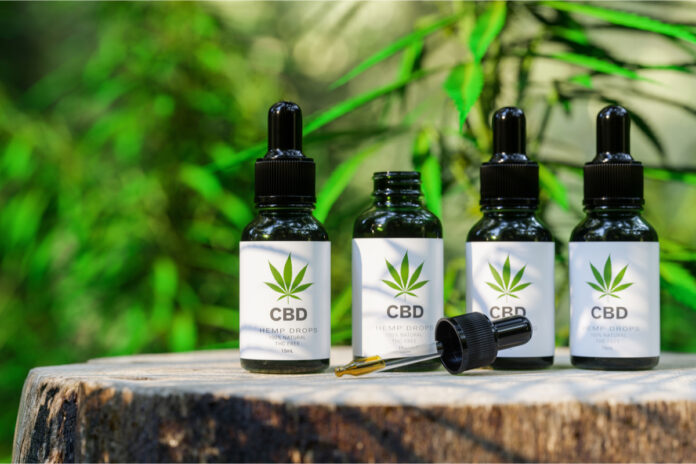As any established brand already should know, cannabidiol (CBD) is a non-psychoactive cannabinoid widely known for its healing benefits. The compound has been shown to ease symptoms of anxiety, depression, and pain while signaling the body’s relaxation response, according to studies. Research also has indicated CBD product labels can be incredibly inaccurate due to regulatory inadequacies.
However, as a pharmacist with a specialty in CBD, I know to understand the safety and efficacy of a CBD product, one must closely examine the brand from several angles.
Like any other drug, consumers should be able to read and comprehend a product’s label, be aware of cannabinoid effects, understand quality testing, know how the CBD is produced, and confirm the manufacturer utilizes third-party testing. Reputable brands make this information easily accessible.
Consumers often assume everything on the market is safe. Unfortunately, due to lack of government oversight and regulation, many CBD brands make false claims and dupe consumers with their low-grade products. However, sellers can become as well-informed as a pharmacist about safety measures to avoid falling prey to spurious brand claims. They then can use that knowledge to inform the work they do in the industry, especially with regard to guiding consumers to the best-suited products.
Here are the top five things industry insiders should understand as they strive to sell safe, effective CBD products.
1. Effects
Prior to walking a consumer through the purchase of a CBD product, teach them how CBD is used and how it can optimize their health. Many evidence-based resources indicate what products are best for specific ailments. Peer-reviewed journals and expert-approved reports will provide insight into what products may best suit your target consumer’s individual goals, needs, and desires.
The appropriate level of CBD intake varies among individuals, and the effects can be quite distinct, too. Particularly, research indicates a full-spectrum topical cream that can be applied to multiple parts of the body may be most helpful for someone with arthritis due to its pain-relieving properties. However, for someone managing day-to-day stress, a broad-spectrum tincture may be a better way to promote relaxation.
Equipping your sales team with knowledge like this will enable them to provide better customer service by giving consumers the tools they need to identify whether a brand is making exaggerated claims.
2. Product labels
A prospective CBD consumer should examine a product’s label and the brand’s website to determine whether anything seems “off.” For instance, they should view where the product is sourced and where the CBD is grown—and companies should make that information clearly available. After all, it is common for brands to source hemp from overseas, which can contain harmful additives and pollutants, in order to keep up with a competitive market.
Advise consumers to check ingredients to see whether the product contains hemp seed oil. Many brands market hemp seed oil and CBD as the same thing, even though products made with the former contain few cannabinoids. Consumers should avoid purchasing “CBD” on Amazon—and brands should avoid selling there—as Amazon allows only products with hemp seed oil, not cannabinoid-rich hemp oil.
CBD generally comes in three forms: full-spectrum, broad-spectrum, and isolate. Many consumers, and some industry members, don’t realize there are significant differences between the three. Researchers at the International Cannabis and Cannabinoids Institute in Prague consider full-spectrum CBD the most potent and effective type of extract as it contains trace amounts––less than 0.3 percent––of THC. Broad-spectrum CBD doesn’t contain any THC but still has components of the cannabis plant, while isolate is pure CBD extract. Manufacturers should be fully transparent about the ingredients they use and specify which form is in each product.
3. Certificates of authenticity
Labeling alone is not enough to discern a product’s quality. It is important consumers also be provided the chance to examine certificates of analysis (COAs) because they showcase the full composition of the product. Companies are not required to publish their COAs, which should be issued by an accredited laboratory, but the certificates are key to demonstrating products have been tested for potency and quality during the production process. Trustworthy brands generally make these scientific reports readily available for every CBD product they sell—and so should you.
COAs often are found on the brand’s website, the URL for which usually appears on the product label. Once you’ve helped a customer locate a COA, use the product’s batch or lot number to search for certificates specific to the product in which they’re interested. Many manufacturers now use product labels that incorporate QR codes that can be scanned for up-to-date COA information.
Unfortunately, forged COAs are becoming more common as consumers pay more attention to product content. Alphagreen provides a helpful guide to CBD COAs that advises brands and retailers to point out the laboratory that conducted the tests, along with a verified list of ingredients. THC content above 0.3 percent should be a red flag, because that’s the threshold above which products are considered marijuana.
Also be sure to point out the testing date. Out-of-date tests are useless.
4. Extraction methods
CBD concentrate may come from a variety of sources; therefore, it is important to explain to consumers how the CBD in a particular product is derived and processed. Specifically, if the brand utilizes manufacturers or brokers, it is crucial to explain how and whether you monitor their business partners. Are the partners using hygienic laboratory procedures and third-party assessments for impurities that can be harmful to users?
Quality CBD generally is more expensive to produce because it is extracted primarily from organically grown hemp, which is farmed without harmful contaminants and pesticides. Ideally, the raw materials will have been processed in clean labs certified by the U.S. Department of Agriculture, and the machinery will have been sterilized to avoid residual solvents and heavy metals in the finished products.
5. Full-panel third-party testing
Third-party lab testing is probably the most important assurance of product quality and safety, as content is analyzed and verified in an unbiased way. With full-panel tests, the third party not only audits for cannabinoid content, but also for microbial evidence, heavy metals, pesticides, residual solvents, and other harmful additives. Companies are not required to perform these expensive lab examinations, but the tests are key to making sure a product is safe and effective.
In the unregulated CBD industry, many brands do not thoroughly test their products. For instance, the most common test by third-party labs is to examine the cannabinoid profiles, ensuring the THC content is accurate. (Such testing is essential to prove products are, in fact, CBD—which is legal federally—and not marijuana, the legality of which varies by state.) Brands may show testing for CBD profiles but not results for heavy metals, which means harmful compounds may exist in the products. Ideally, an unbiased third-party will audit everything about a product, including growing methods, drying, curing, storing, extracting, and processing.
Finding good CBD products is a challenge even for pharmacists, but the recommendations above will help ensure brands meet industry standards. That way, even the most novice CBD consumer will be able to purchase safe and effective products.
 Chris Adlakha, PharmD operates compounding pharmacies in Texas where his Elevated Wellness line of CBD products is produced in state-of-the-art, regulated laboratories using pharmaceutical science. Elevated Wellness products contain purely U.S.-grown, non-GMO organic hemp and are gluten-free and vegan-certified.
Chris Adlakha, PharmD operates compounding pharmacies in Texas where his Elevated Wellness line of CBD products is produced in state-of-the-art, regulated laboratories using pharmaceutical science. Elevated Wellness products contain purely U.S.-grown, non-GMO organic hemp and are gluten-free and vegan-certified.


